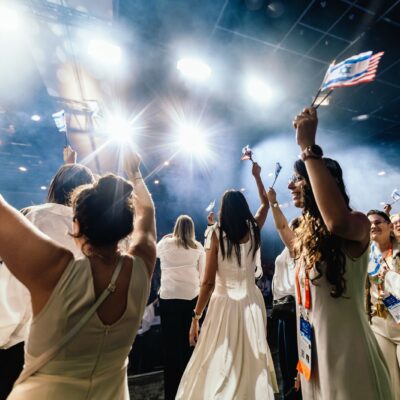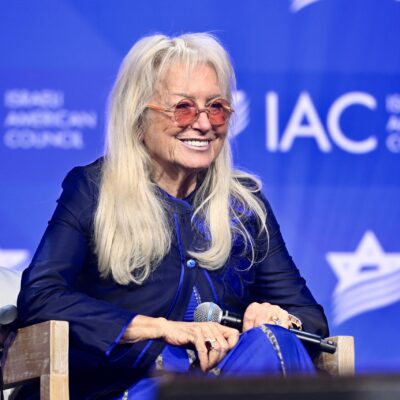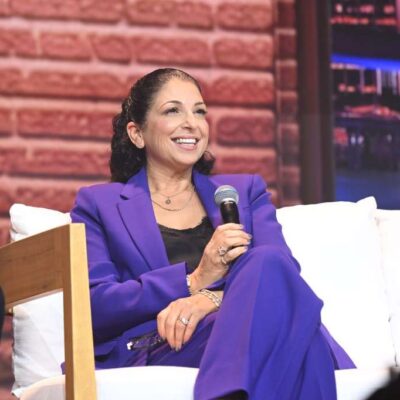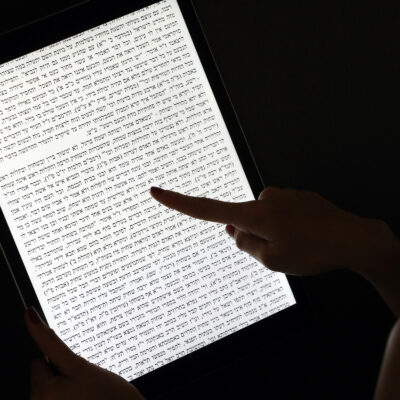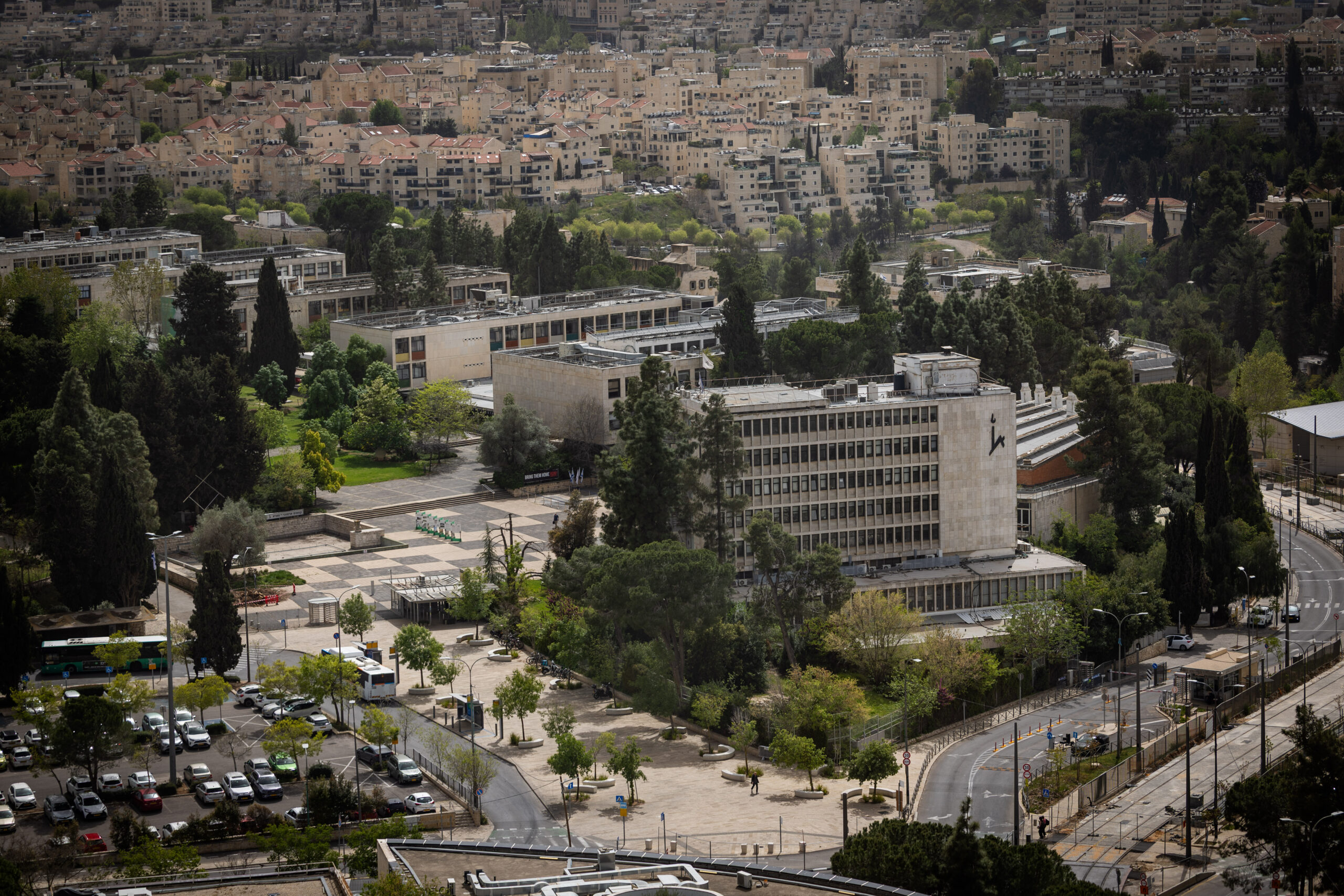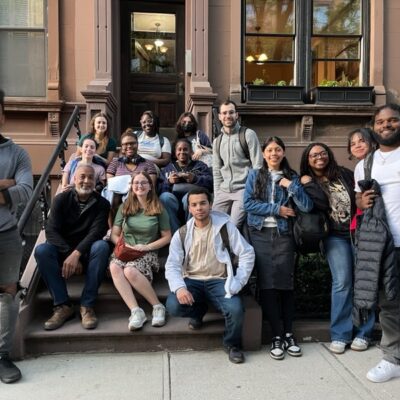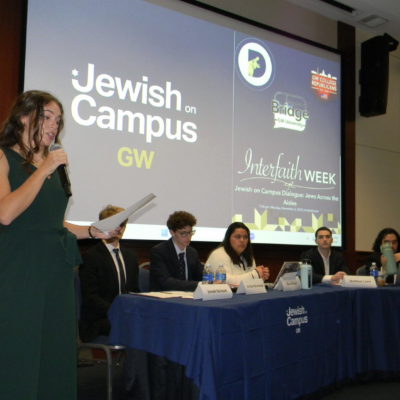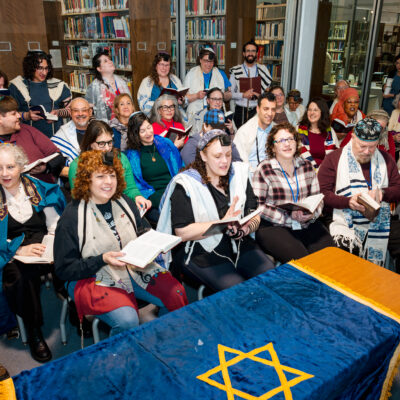JWI creates collective to combat domestic violence with $750,000 Schusterman grant
In the early weeks of the pandemic, Amanda Katz, the executive director of the Jewish Coalition Against Domestic Abuse (JCADA) in Rockville, Md., felt isolated and overwhelmed. She was grateful when Jewish Women International (JWI) started offering online forums to connect people doing domestic violence work in the Jewish community. “Working from home, handling our own families’ needs, trying to protect our staff from getting sick but keeping up services to clients, we have been in crisis for over 18 months now and it isn’t over. Having colleagues who were experiencing the same issues was a great asset,” Katz told eJewishPhilanthropy.
Now, thanks to a three-year, $750,000 grant from the Charles and Lynn Schusterman Family Philanthropies, those forums will become part of a larger program — a national collaborative of Jewish domestic violence programs, also administered by JWI. The grant will also help fund another program that trains JCC staff to help children exposed to domestic violence, which is also supported by the Senser Foundation, and a financial education series for survivors of domestic violence and financial abuse.
Jewish Family Service Houston, Jewish Family Service of L.A., the Organization for the Resolution of Agunot (women whose husbands won’t give them a religious divorce) and nine other groups have already joined the collaborative, which aims to bring in as many as 37 domestic violence agencies, said Ariella Neckritz, JWI’s director of violence prevention and training, who is herself a survivor of dating violence. Neckritz ran the “Change the Culture” program, which has conducted about 100 sexual assault and dating violence prevention workshops at universities.
“There’s so much potential to change the choices people make, and as a survivor, I also know how critical it is that people receive support,” Neckritz said.
The idea for the collaborative emerged from a Schusterman-funded survey of the Jewish domestic violence field JWI conducted during the pandemic. The pandemic spurred the foundation to reach out because life in lockdown, even in healthy relationships, gave people a more visceral understanding of what it would be like to live with an abuser, said JWI CEO Meredith Jacobs. Domestic violence spiked around the world in early 2020 and remains elevated: Time magazine called it a “pandemic within a pandemic.” The foundation approached JWI, which traces its roots to the 1897 meeting of the first women’s auxiliary of B’nai B’rith, which has worked for two decades on programming and advocacy on the issues of domestic violence and prevention.
JWI, in turn, contacted every domestic violence program serving the Jewish community to ask about their most pressing needs.
“What came through loudly from our needs assessment is the lack of support for Jewish survivors as well as real needs of the staff of our local domestic violence programs,” Jacobs said. “I see us as a force multiplier for their work.”
Under the auspices of the collaborative, the forums will offer training, information about successful local efforts and the opportunity to form partnerships. It will also host quarterly convenings with formal agendas addressing different issues, and a two-day global online conference scheduled to take place next summer.
Members of the collaborative will also have free access to the webinar series featuring experts in the domestic violence field that JWI has been producing since 2008. Recent topics included COVID-19 housing assistance, supporting LGBTQ survivors, technology-facilitated stalking, and healthy masculinity, said Deborah Rosenbloom, JWI’s chief program officer.
The nonprofit Journey to Safety in Boston is a member of the collaborative that appreciates its focus on the Jewish community, said Elizabeth Schon Vainer, the group’s program director, and Julie Youdovin, the outreach and program coordinator. Journey to Safety is a program of Jewish Family and Children’s Services, but it serves the general population.
“We have an amazing community, but we’re working in the secular space, and it’s so helpful to have colleagues in the Jewish space,” Youdovin said.

 Add EJP on Google
Add EJP on Google